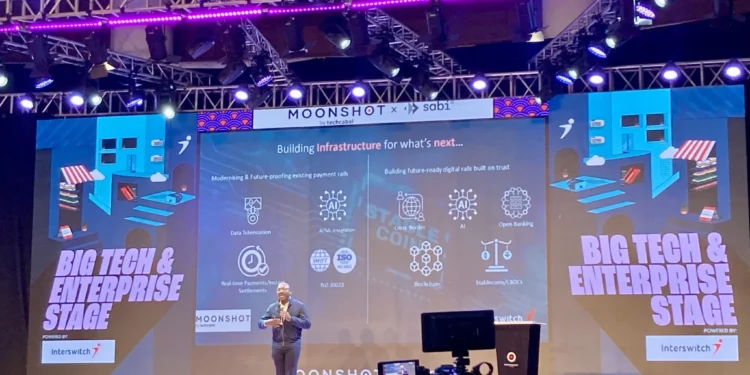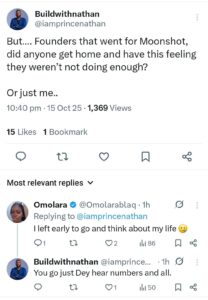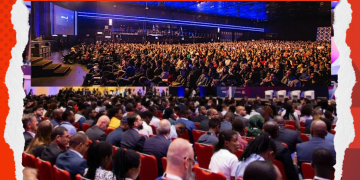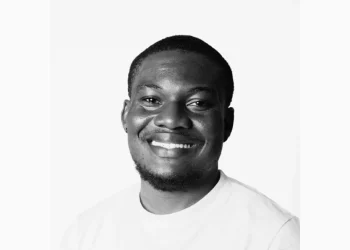This article is part of our continuing coverage of TechCabal’s Moonshot 2025, Africa’s largest and most influential technology and innovation gathering. Every year, Moonshot attracts thousands of founders, operators, investors, and dreamers converging on Lagos to discuss the future of African tech, capital, and creativity.
But beyond the lights, panels, and photo booths, Moonshot also triggers something deeper — reflection. For many founders, the event isn’t just about networking; it’s about confronting their progress, ambitions, and fears.
That sentiment was captured powerfully by Nathan (@iamprincenathan) who wrote on X:
“Founders that went for Moonshot, did anyone get home and have this feeling they weren’t doing enough? Or just me…”
And in the replies, Omolara Blaq (@Omolarablaq) confessed,
“I left early to go and think about my life.”
Those two posts, though humorous on the surface, speak to a larger undercurrent that runs through Moonshot every year — the confrontation between inspiration and inadequacy.
The Mirror That Moonshot Holds Up
For many African founders, Moonshot isn’t merely an event; it’s a mirror. It reflects what you’ve achieved and what you haven’t, the potential you’ve ignored, and the opportunities you’ve allowed to pass by.
You walk through the exhibition halls and see startups announcing global partnerships, fintechs unveiling new products, and founders sharing growth stories that sound like case studies from Silicon Valley. In those moments, you can either feel threatened or ignited.
One founder told me, “Moonshot made me realise how small I’ve been thinking.” That is precisely the point. Events like this are designed to stretch your imagination, not your ego.
The State of African Tech: From Survival to Scale
African tech in 2025 is not in its infancy anymore. We are witnessing real businesses scaling across borders, serious exits, and institutional investment flowing in from the Middle East, Europe, and Asia. Founders are no longer just raising seed rounds; they are acquiring competitors, listing on local exchanges, and experimenting with AI-driven products tailored for African realities.
Across sectors, we are seeing transformation:
– Fintechs like Flutterwave, Moniepoint, and Paystack continue to deepen infrastructure.
– Mobility platforms such as LagRide and Treepz are reimagining local transport economies.
– Healthtech startups are building AI-powered diagnostics for rural communities.
– Creative tech is evolving into a $10 billion ecosystem, fusing storytelling, fashion, and software.
In short, there is no more excuse to stay small. The ecosystem has matured; what remains is personal scale.
From Imposter Syndrome to Expansion Mindset
When founders like Nathan or Omolara voice these feelings, they are articulating something universal. Success in tech is often loud and visible. But growth, learning, and resilience happen quietly, far from the cameras.
Feeling you’re “not doing enough” isn’t failure; it’s the creative tension that drives innovation. The best founders channel that discomfort into expansion. They return from events like Moonshot with refined strategies, bigger dreams, and stronger teams.
The ones who plateau are those who spend the following week just scrolling through photos and tweets without taking any action.
Moonshot as a Catalyst
For some, attending Moonshot became the inflection point in their journey.
– It led to new partnerships and investor introductions.
– It gave startups media visibility that later translated into clients.
– It inspired pivots that saved dying products.
– And in some cases, it unlocked global opportunities through collaboration and community.
If you attend Moonshot and still go home unchanged, you probably missed the point. The conversations, workshops, and even casual hallway exchanges are all designed to push you beyond your comfort zone.
Moonshot is not a tech event; it’s a test of imagination.
What It Can Be for You
If you are a founder reading this, take Nathan’s question personally. Are you really doing enough? Are you maximising the tools available to you — AI, automation, storytelling, partnerships, global networks?
Moonshot reminds us that Africa is no longer waiting for validation. The next unicorns, the next billion-dollar ideas, will come from founders who refuse to coast. You don’t need to have everything figured out, but you must move with clarity, consistency, and courage.
As the energy of Day 1 settles, one truth remains clear: the people who will define Africa’s next decade of innovation are not just attending events like Moonshot; they are building from its lessons.

















